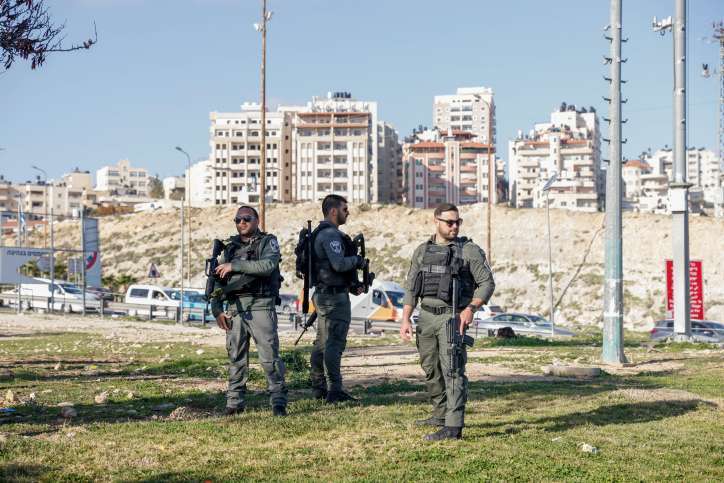New Agreements Are Unlikely to Create Anything New
All sides understand that calm is urgently needed. The problem is that the Palestinian leadership in Ramallah has no control over its own people.

A powder keg just a few weeks before the Islamic month of fasting, Ramadan. All sides understand that calm is urgently needed. The problem is that the Palestinian leadership in Ramallah has no control over its own people. Palestinian leader Mahmoud Abbas can make all sorts of deals with Israel, but if his people don’t respect him, then there’s no point.
At the end of the summit, Jordan announced yesterday that Israel has agreed to freeze Jewish construction in the settlements. Israel’s right-wing Finance Minister Bezalel Smotrich: “That won’t happen.” A senior Israeli political official: “Renewal of security coordination with the Palestinian Authority under consideration.” The same source confirmed to the Jordanian source that no further decisions on Jewish settlement expansion will be made in the coming months. According to reports in Jordan, the agreement includes a commitment from the Israeli side to halt discussions on the construction of new housing units in the settlements for four months and to halt further Jewish settlement blocks for the next six months.

In addition, the sides are said to have agreed to resume the establishment of a joint security committee. The renewal of security coordination and the promise of the Palestinians to finally take responsibility for the fight against Palestinian terrorism in the Palestinian-controlled territories should be urgently examined. A second meeting under Egyptian auspices is to be held before Ramadan (starts March 22) to review progress on the security axis. In addition, a joint civil committee is to be set up in order to build new trust. From an Israeli point of view this is almost impossible, but Israel always errs on the side of hope.
In the governing coalition, criticism of the agreements has been fierce. “If these agreements come true, it will be a disgrace to Israel,” Likud MK Danny Danon said. “That can not be true. On the day of a murderous terrorist attack, the Israeli government puts a price on terrorism and agrees with the Palestinian Authority to end Jewish construction freeze in Judea and Samaria?”

Smotrich later remarked: “I have no idea what has or has not been talked about in Jordan. I, like everyone else, heard about this unnecessary conference from the media. But one thing I do know: There will not be a single day stop in construction and development in the Jewish settlements. That’s my responsibility. The IDF will fight terrorism in all areas of Judea and Samaria without restriction. We will confirm that in the cabinet. Very easily.”
The right-wing ministers have real problems presenting their own policies to the people and especially to their voters. In such cases, Prime Minister Benjamin Netanyahu alone decides with the security committee and keeps his ministers out of the game.
From the center of Israeli politics, Gideon Saar from the National Unity party under Benny Gantz pointed out that the previous governing coalition rejected such summit meetings from the outset because they wanted to avoid the consequences of a Jewish settlement freeze. “We refused to make compromises back then. But now there is a full right-wing coalition at the top and it is doing what we were wary of,” Saar said in his tweet.
The new agreements in Jordan are well intentioned but unlikely to create anything new. Hamas and its terrorist colleagues will do everything they can to lure Israel’s new right-wing religious government into an uprising or war.
“What was agreed in Jordan stays in Jordan,” said National Security Minister Itamar Ben-Gvir. So nothing will be frozen in Judea and Samaria.
No comments:
Post a Comment